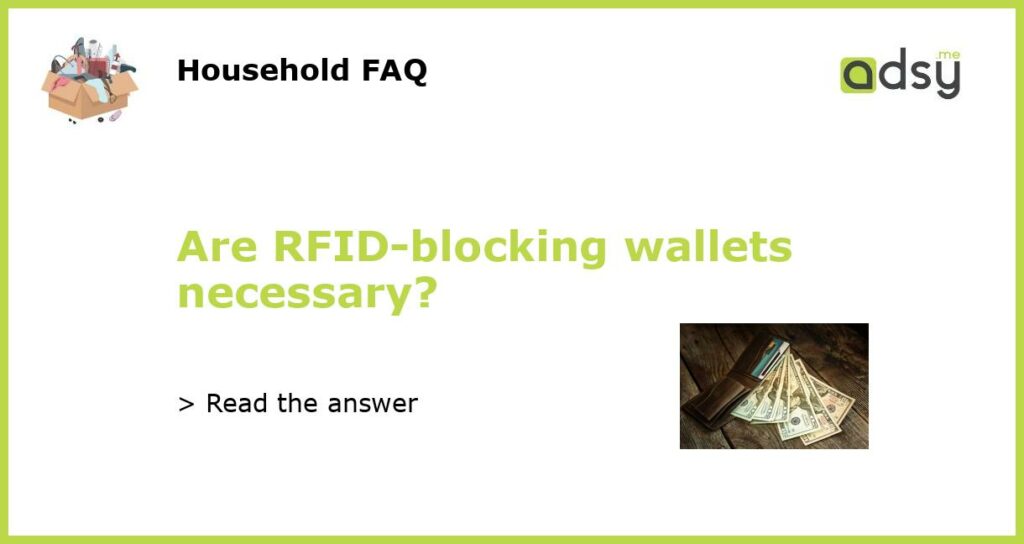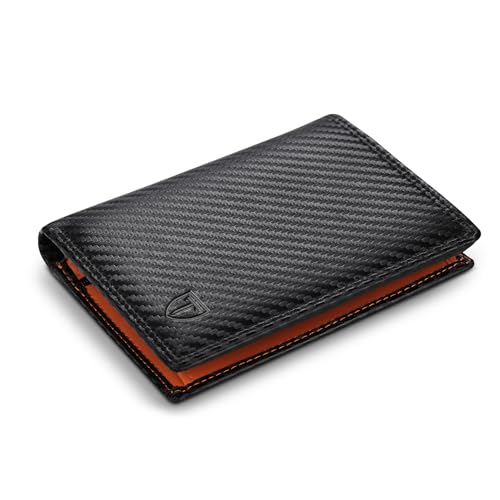How RFID-Blocking Wallets Work
RFID-blocking wallets are becoming increasingly popular as consumers become more aware of the potential risks associated with RFID technology. RFID stands for Radio Frequency Identification, and it is used in various applications such as contactless payment cards, passports, and even some driver’s licenses. These RFID-enabled cards rely on radio waves to transmit data wirelessly, making them vulnerable to unauthorized scanning and information theft.
RFID-blocking wallets are designed to protect these cards from unauthorized scanning by creating a shield that prevents the radio waves from reaching the card. This shield is typically made of a material that is capable of absorbing or blocking the radio waves, such as metal or certain types of fabric. By using an RFID-blocking wallet, consumers can have peace of mind knowing that their personal and financial information is safe from potential hackers.
The Risks of RFID Technology
While RFID technology brings convenience in various aspects of our lives, there are some potential risks associated with it. One of the main concerns is the possibility of unauthorized scanning of RFID-enabled cards. With a simple handheld RFID reader, hackers can easily capture the data stored on these cards without the cardholder’s knowledge. This data can then be used for fraudulent purposes, such as making unauthorized purchases or identity theft.
Another risk is skimming, where criminals use specialized devices to capture the information from RFID-enabled cards from a distance. By standing close to someone carrying an RFID-enabled card, they can steal the card’s data without physically touching it. This type of theft can be done in crowded places such as public transportation systems or busy shopping areas, making it difficult for victims to notice until it is too late.
The Effectiveness of RFID-Blocking Wallets
RFID-blocking wallets have been designed specifically to mitigate the risks associated with RFID technology. These wallets create a Faraday cage around the cards, blocking the radio waves used for communication. This means that even if a hacker or a skimmer tries to scan the cards, the shield created by the wallet prevents the radio waves from reaching the cards, effectively protecting the information stored on them.
However, it is important to note that the effectiveness of RFID-blocking wallets can vary. Some cheaper variations might not provide sufficient protection, as they may not completely block the radio waves. It is recommended to invest in a high-quality RFID-blocking wallet that uses tested and approved materials to ensure maximum protection. Additionally, it is important to stay updated on the latest developments in RFID technology, as hackers are constantly finding new ways to bypass security measures.
Industries That Benefit from RFID-Blocking Wallets
RFID-blocking wallets are not only useful for individuals, but also for various industries. For businesses that handle sensitive customer information or trade secrets, using RFID-blocking wallets can help protect valuable data from falling into the wrong hands. This is particularly important in industries such as finance, healthcare, and technology, where the consequences of data breaches can be severe.
Additionally, frequent travelers can benefit from RFID-blocking wallets to protect their passports and contactless payment cards while on the move. As airports and other transportation hubs increasingly utilize RFID technology for identification and ticketing purposes, it is essential to safeguard personal information from potential theft.
Conclusion – Should You Invest in an RFID-Blocking Wallet?
In conclusion, while RFID-blocking wallets are not a necessity for everyone, they do provide an added layer of security for individuals and businesses alike. With the increasing prevalence of RFID technology and the potential risks associated with it, it is wise to consider investing in an RFID-blocking wallet if you regularly use RFID-enabled cards, passports, or other identification documents.
By using an RFID-blocking wallet, you can protect your personal and financial information from hackers and skimmers who may try to steal your data. However, it is important to ensure that you choose a high-quality wallet that provides sufficient protection and stays updated on the latest developments in RFID technology to stay one step ahead of potential threats.






